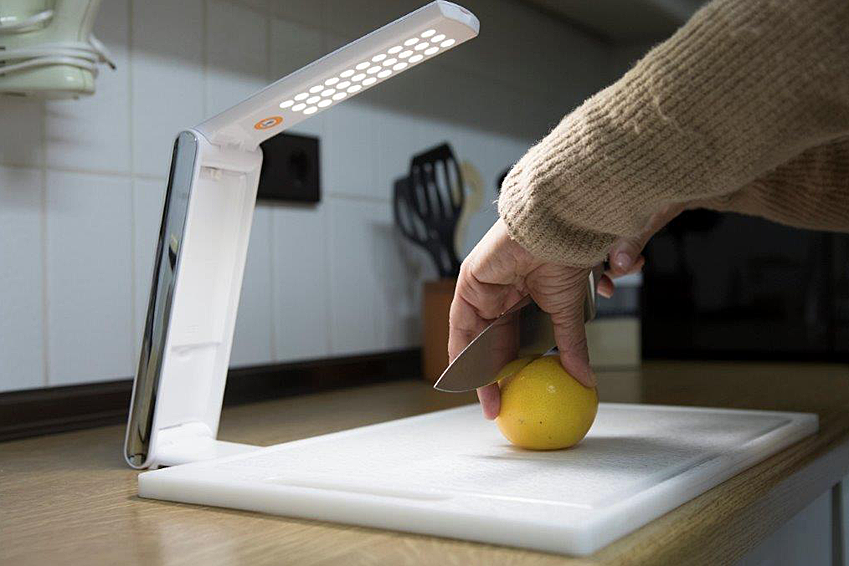Good lighting can be extremely effective in making everyday life easier. Many people with visual impairments, such as macular degeneration, are not aware of this. Patients suffering from macular degeneration find it increasingly difficult to read, and household tasks are also a great effort. The right lighting can provide relief for those affected.
10 Tips for Light and Lighting at Home for Macular Degeneration
- The basic illumination of the entire home should be consistent, sufficiently bright, glare-free, with few shadows and flicker-free.
- Indirect lighting above bright walls and ceilings work well for dark parts of the room or as a supplement.
- Try out whether you get on better with cold or warm light.
- Where people work, read and create, additional workplace lighting is necessary.
- Choose lamps which do not allow a direct view of the light source.
- Try to reduce glare, for example by using louvres or curtains on windows, matte floors and work surfaces.
- Dimmable lights are a good way to respond to different lighting conditions and changes in lighting needs.
- Motion detectors that automatically switch on the light when a room is entered are often a better solution than light switches.
- Do not place lights too far back under wall cupboards. Light in cupboards makes it easier to find clothes, for example.
- A headlamp is useful in many situations. When out and about, torches and small, foldable lights are helpful.
Good Reasons for Better Lighting for Macular Degeneration
- Optimising light can improve visual acuity, contrast perception and reading speed.
- A good lighting solution leads to an increase in independence, reduces the risk of accidents and also enables faster orientation.
- Even small changes in lighting affect spatial perception, psychological well-being and health.
Source: 2019 German Association for the Blind and Visually Impaired e. V.


Leave a Reply